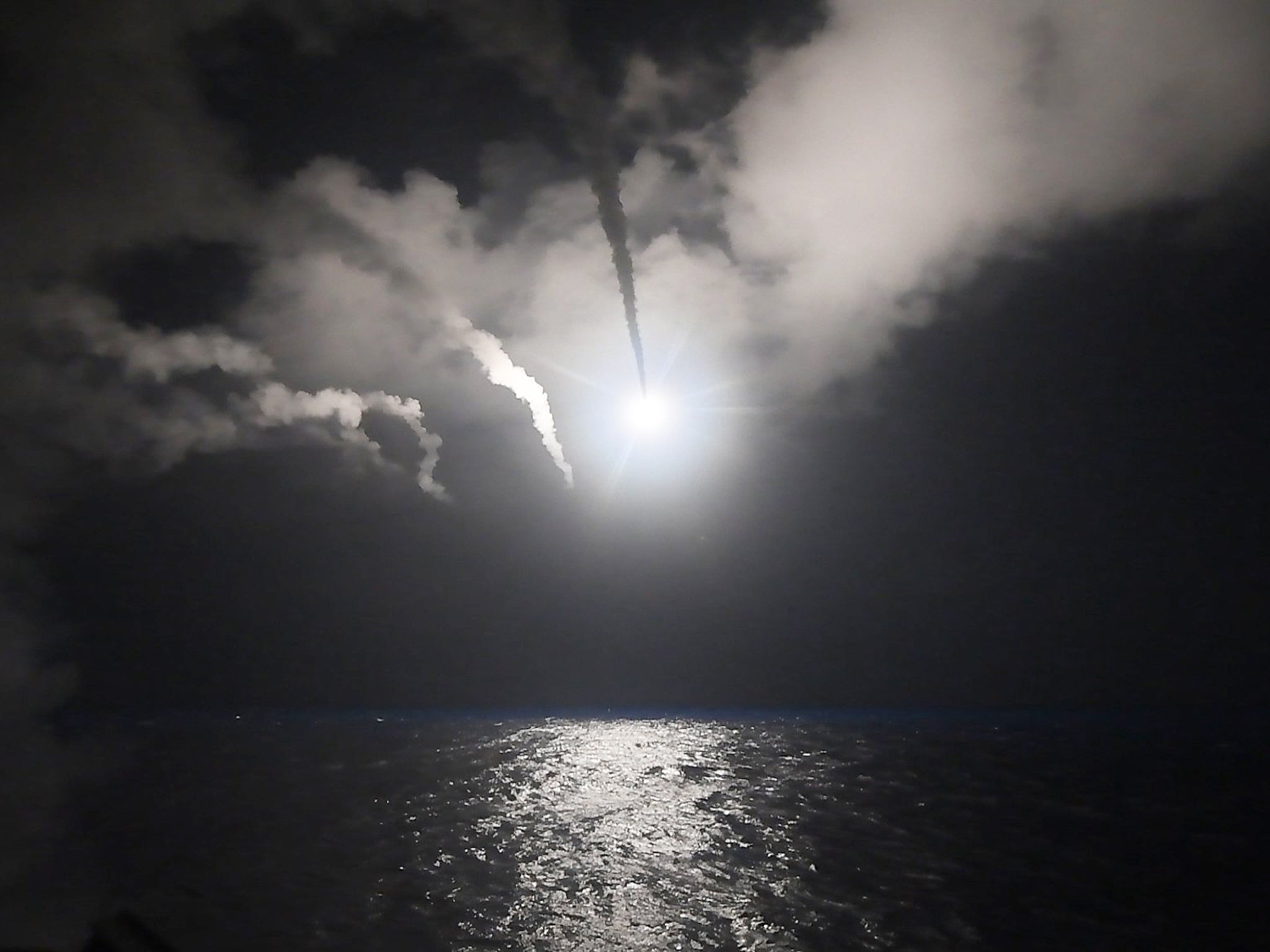UK involvement in Syria: Would the Government or Labour back military intervention after US air strikes?
Downing Street issued a statement saying the Government 'fully supported' the actions of the US President in Syria. But how likely is Britain to become involved in a military offensive against the Syrian regime?

In the early hours of Friday morning a barrage of 59 Tomahawk missiles, fired from US Navy vessels located in the Mediterranean sea, hit the al-Shayrat airbase near Homs. It is claimed the base was responsible for launching the deadly chemical attack on Tuesday, which killed dozens of civilians in the Idlib province of the war-ravaged country.
As Donald Trump urged other so-called “civilised nations” to join the US in its effort to “end the slaughter and bloodshed” in the region, the Independent examines the position of the UK Government, the opposition parties and whether it is likely Britain will now step up its military intervention in Syria.
What is the reaction from the UK Government?
As news of the airbase assault filtered through, Downing Street, which was notified beforehand by the American administration, hastily issued a statement saying it “fully supported” the actions of the US President in the early hours of Friday morning. Government sources added they believed the action was “an appropriate response to the barbaric chemical weapons attack launched by the Syrian regime, and is intended to deter further attacks”.
Will the UK get involved in further military action?
Despite Michael Fallon, the Defence Secretary, reiterating Downing Street’s position that the Government was fully behind the offensive, it is unlikely any further military action will be taken. Speaking on Friday morning, Mr Fallon added that the US strike against the Syrian airbase near Homs was intended to deter Bashar al-Assad from carrying out any further chemical weapon attacks but was not the start of a new military campaign. “We don’t see last night’s strike like that,” he said.
He continued: “We’ve not asked to be involved in this, this was not a matter for the coalition that’s in Syria and Iraq fighting Daesh.”
What is Labour’s position?
Jeremy Corbyn has condemned the strike on the Syrian regime’s airbase, suggesting the assault could escalate tensions in the region’s on-going, bitter civil war, which over the last year has claimed over 300,000 lives.
He described the nerve gas attack on the Idlib province as a “horrific war crime” but said unilateral military action without legal authorisation or independent verification of the chemical attacks risks “intensifying the multi-sided conflict”.
“What is needed instead is to urgently reconvene the Geneva peace talks and unrelenting international pressure for a negotiated settlement of the conflict,” he added.
But splits in the party rapidly became apparent as a string of former Shadow Cabinet members voiced their support for Mr Trump’s actions in Syria, including Labour’s deputy leader Tom Watson, who said the attack appeared “to be a direct and proportionate response”, adding chemical weapon attacks “must have consequences”.
What is the UK’s current involvement in the region?
In a major blow to David Cameron’s authority in 2013, MPs voted against the Government to take military action in Syria against Assad’s regime to deter the use of chemical weapons. He was defeated by 258-272 votes and a total of 30 Conservative MPs voted against the party whip.
But in a separate vote in 2015 a vote was passed to join the United States-led coalition campaign in Syria and Iraq to tackle the threat from the terrorist group Isis and remove the “snake’s head”. It means that RAF planes are currently involved in military action in the region but do not target Assad’s regime.
What would it take to escalate military involvement?
The Government has repeatedly insisted it has no plans for military action and is instead working with the international community to look at how to bring an end to the six-year civil war. But if Theresa May wished to become further involved in the military offensive – and attacks Assad’s regime – she would likely have to seek a mandate to do so in the Commons and her victory would not be guaranteed.
Speaking on Friday, Mr Fallon added: “We’re not committed to military action against Syria. Our Parliament considered that before, back in 2013, and turned it down.”
While many of the Tory MPs who defied the party whip in 2013, then voted to back the offensive against Isis in the region in 2015, they are considerably more divided when it comes to launching an offensive against Assad and the prospect of regime change. Many believe an escalation in conflict could also lead to the UK stumbling into a proxy war with Russia as Vladimir Putin’s forces are supporting the Assad regime in its ongoing battle with the rebels.
Join our commenting forum
Join thought-provoking conversations, follow other Independent readers and see their replies
Comments